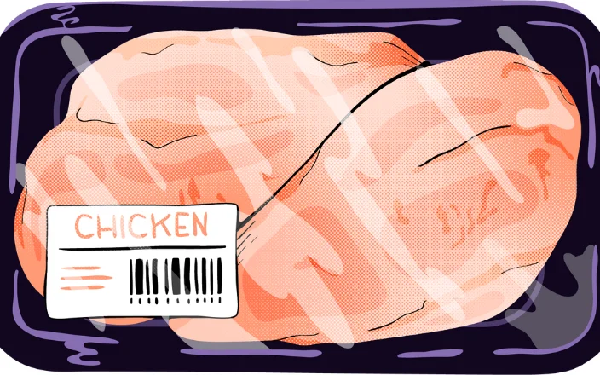
In the face of global economic fluctuations and shifting market dynamics, Mexico’s poultry industry has experienced notable changes. From January to May 2024, the country saw a significant decline in its international chicken imports, reflecting a strategic response to various factors. In this article, we delve into the reasons behind this reduction and explore the implications for Mexico’s poultry sector.
The numbers
According to data from the Grupo Consultor de Mercados Agrícolas (GCMA), Mexico’s chicken meat imports decreased by approximately 6.3% during the first five months of 2024 compared to the same period in 2021. This decline amounted to a total of 354,431 metric tons. While this reduction is substantial, it’s essential to understand the context and contributing factors.
Factors driving the decline
Several interconnected factors influenced Mexico’s decision to reduce chicken imports:
- Global price trends: International chicken prices experienced fluctuations during this period. Although Mexico increased its import volume by 20%, the overall cost of these imports decreased by 8.5%. This suggests that Mexico strategically capitalized on favorable pricing conditions to optimize its import strategy.
- Domestic production and consumption: Mexico’s poultry industry has been expanding, leading to increased domestic production. As local producers meet more of the country’s demand, there is less reliance on imports. This shift aligns with Mexico’s goal of achieving self-sufficiency in poultry production.
- Trade agreements and tariffs: Trade agreements and tariff policies play a crucial role in shaping import decisions. Mexico’s policymakers likely considered these factors when adjusting import quotas and tariffs. By reducing imports, they aimed to strike a balance between supporting domestic producers and maintaining trade relationships.
Outlook and challenges
Despite the decline in imports, experts predict that Mexico’s overall trend in international chicken purchases will remain positive by the end of the year. The country’s growing population and changing dietary preferences continue to drive demand for poultry products. Additionally, the poultry industry’s resilience and adaptability position it well for future challenges.
Conclusion
Mexico’s strategic reduction in chicken imports reflects a dynamic response to market conditions. As the country balances self-sufficiency with global trade, stakeholders in the poultry sector must remain vigilant and adaptable. By monitoring price trends, production capacities, and trade policies, Mexico can continue to navigate the complexities of the poultry market effectively.
In summary, Mexico’s decision to reduce chicken imports demonstrates a proactive approach to managing its poultry industry. By leveraging favorable pricing and focusing on domestic production, Mexico aims to maintain a robust poultry sector while meeting the demands of its growing population.
Source: Avinews.com







